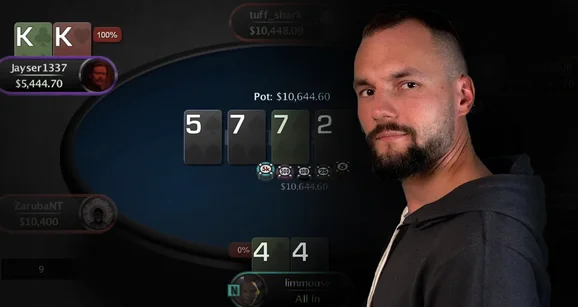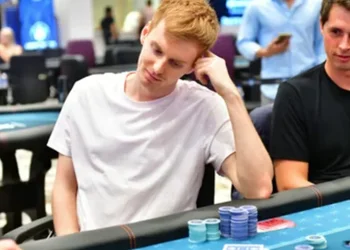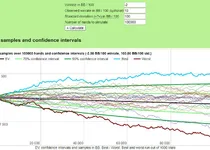Jayser1337, a professional coach and high-stakes reg, got together with Avr0ra and Brdz1 for a video podcast.
In just over an hour, Jayser talked about quitting the game three times and returning, studying efficiently, poker's future, and becoming a father.
Quitting 3 Times and Getting Back Into Poker
Avr0ra: There's the myth in poker that no one leaves the game for good. Everyone gets back after some time, maybe loses money or maybe reignites his career but is not as good of a player anymore. A very popular question on my streams – I started streaming a lot lately – is what would have happened if Forhaly got back into the game.
But the first part of it is actually a myth. We know that Jayser, Forhayley, GiveMeUP – they all left. And a lot of other players as well – the European players like Tom Dwan, OTB Red Baron, all those really big names who were at the top of the game have left poker for good.
Each of them has an independent reason why he got tired of playing poker. Sergii, a question for you: What substitute have you found for poker in your life? And maybe you have some examples of your own when people left the game for good or when they came back and it wasn't very successful.
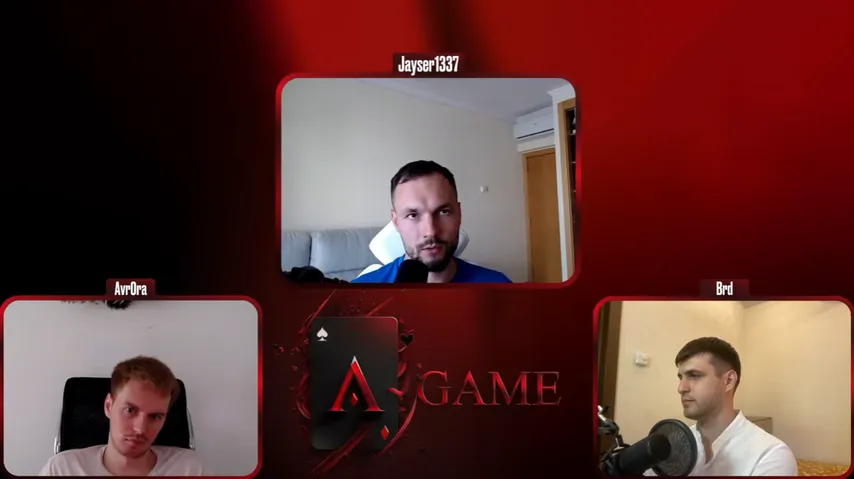
Sergii "Jayser1337" Levchenko: Well, I'm actually quite an experienced guy in this regard because I've tried to quit poker three times. There are certain patterns that I see pretty much in everyone who tries to quit, including those big names that you've mentioned.
There's this void, this emptiness that appears inside after some time, in my experience and the experience of my friends who also quit poker. There are certain patterns. First, you are in a state of euphoria. You have a lot of free time, you don't have pretty much any stress, and you can do anything you want. You have a lot of new hobbies and so on. But over time, you get tired of all of this. You lack this action that poker gave you. You don't have this clear path where you know exactly where you're going.
The first time I quit poker, and I did it three times, I started reading a lot of books, started learning English, started doing a lot of sports and all of this self-improvement stuff. At first, it's really entertaining, but over time you get bored. Your brain starts craving for this food it used to get from poker, which it lacks now.
So it's really important to fill this void with something that will bring you at least somewhat the same amount of emotions and food for your thoughts, let's say.
To me, I found three activities to help me with all of that:
- First one was around all those recent years, it is coaching, which allows me to take the best part of poker like strategy, analytics, analysis, this intellectual fight against your opponents – although not your opponents anymore, but still, when you think how to outplay a certain player. Coaching gives you all of that when you work with your students. Plus, coaching activity doesn't bring any stress in your life, which you always have when playing a session.
- Second, I started my own YouTube channel, which helps me to combine creativity with my poker knowledge to create a product that I hope will be useful for someone.
- Third is reading about how the whole world works. I read everything from psychology to politics and geopolitics and so on. It's really interesting to learn how the world works and to feed your brain with this information to live a more interesting life.
Avr0ra: The only time I've been out of poker for a long period, 45 days, I lacked this pleasant feeling that I am doing something. You're kind of on vacation, but you're not.
So yeah, using your words, it is really important to fill this void.
How Jayser is Using Poker Software Properly
Avr0ra: There was a moment, like an "aha moment" for you, when you completely switched from just working on some hands overall to working only with software to go over some spots really meticulously, like small blind versus big blind, button versus big blind, and some 3-bet pots maybe.
So, you changed your approach, thinking that you don't actually gain much from just going over your hands and that you should work much more with the software.
Now since time has passed, do you still think the same or maybe were you all wrong about it?
Jayser: Well, it's not that simple.
Everyone is different and I like to compare people to neural networks. We all learn the same way – through experience, through practice, and through working on theory. Everyone's different. For one person, it's much more beneficial to work with software and for another, it's more beneficial to discuss hands and work with something like GTO Trainer.
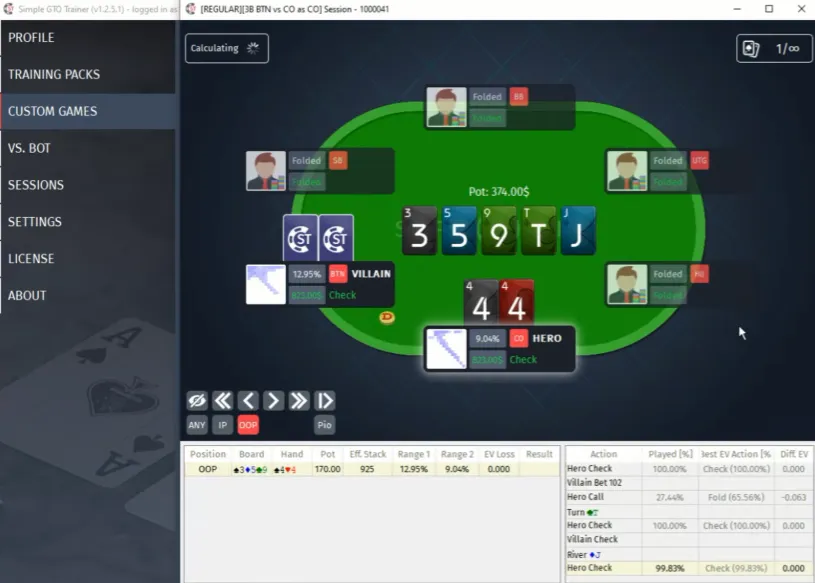
I think that there's an optimal ratio of spending time for everyone, like X on this and Y on that.
To me, yes, I found that it is much more beneficial for me to work with the software and spend less time analyzing hands logically, so to speak.
But if you take my students as an example, especially guys from NL200, for them, it is really important to work on logic. The most common mistakes for those guys, for players from NL200 to NL500, are logical mistakes. So you can study and try to copy solvers as much as you want, but it won't help you really if you don't understand the logic of decision-making.
People make those mistakes not understanding the reasoning behind actions, not understanding sizing choices, and so on. Even players from NL1000 and even NL2000 and NL5000 sometimes make those mistakes.
Jasyer's Thoughts on the Future of Poker
Avr0ra: Okay, now I want to talk about the future of poker. We've talked about it a little bit before.
I know that you are pessimistic about it. All those things like "poker has only two years left," as they always said, is kind of true. All of those neural networks are a big threat to online poker. But in my experience, I've heard so many times that poker is about to die, that the game has like two years left, and is still dying.
The first time we've heard about it, and you Sergii are very familiar with it, was when the first bots appeared. It happened on PokerStars in like 2013, and everyone was skeptical about the game, thinking that the bots would take over and that they were already better than humans. But the whole thing eventually balanced out because you can't use too many bots, or they are not so profitable, and so on. So yeah, the situation is kind of resolved.
When for the first time a poker bot outplayed a human in the heads-up match, everybody was very skeptical. But then it turned the other way around, and maybe everything will stay at the same level, pretty much. Maybe those neural networks will kill poker, but not as fast. But I believe your opinion differs.
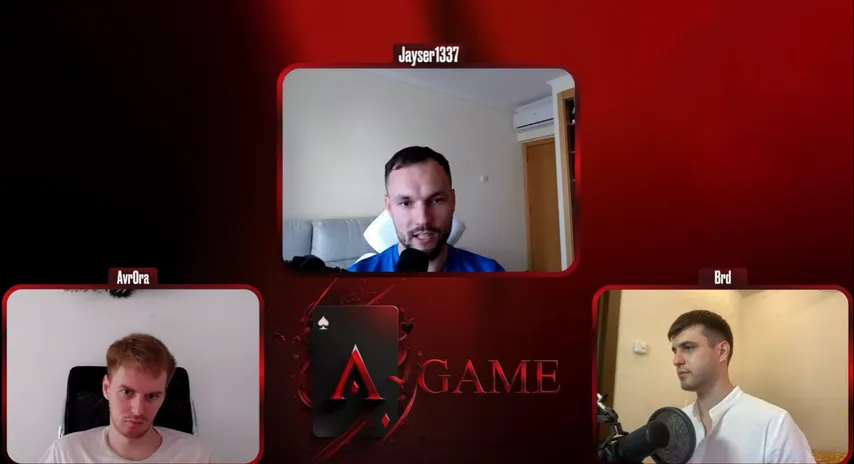
Jayser: Well, not exactly. Let me specify some things.
In terms of poker overall, I have a positive vision of the future of the game. Because with the development of technology, people overall get more wealthy. They have more free time, and it's a big positive for the gambling industry. I mean, more people have more free time and more money, and more people can throw their chips around at the table.
You, Alexi, told me after coming back from Triton that you were impressed by the number of recreational players at the top tournaments, which resulted in a good expectation. So yeah, the whole picture for poker itself is positive, in my opinion. But it's negative for online poker.
Yeah, before, we were talking about an important thing. If you really love poker, if you really enjoy the game, and you are ready to then at some point switch from online to offline. Maybe because you cannot beat top stakes anymore or anything else, then of course go for it.
But the thing is that a lot of players are in the game simply for money. They don't really enjoy the game. They don't really love it. They consider it their job, and they just play to make money. This approach is not a good one, in my opinion, because many of those players will end up with not enough money to their name.
Because without the love for the game, as pretentious as it might sound, you will never reach the top.
Being a mediocre player, playing for 10 years, and then quitting poker without a lot of money in your bank account and without any other skills in life... well, it's a tough spot to be in. So whether you want to start or not, it's up to you. I think that the future of online poker is not as bright, but I assume that everything is going to be fine with live games. So if you love the game, every door is open for you, at least in live games, and no AI can destroy it, in my opinion.
Avr0ra: Yeah, the key point when deciding whether to pursue a poker career or not, and I've been talking about it in many interviews before, is enjoying the process. If you really enjoy the process, then you should continue.
A New Rising Star at High Stakes
Avr0ra: I know that you are in a hurry, but please answer. There's a new star on high stakes, Daniil Vasilev on PokerStars.
His way to the high stakes was really tough. Well, he basically was always around, he played NL1K. You probably played with him, I played with him. He didn't come out of nowhere, but he always did take very aggressive shots at higher stakes.
He didn't sell a lot of action as well, so he tried this on his own money.
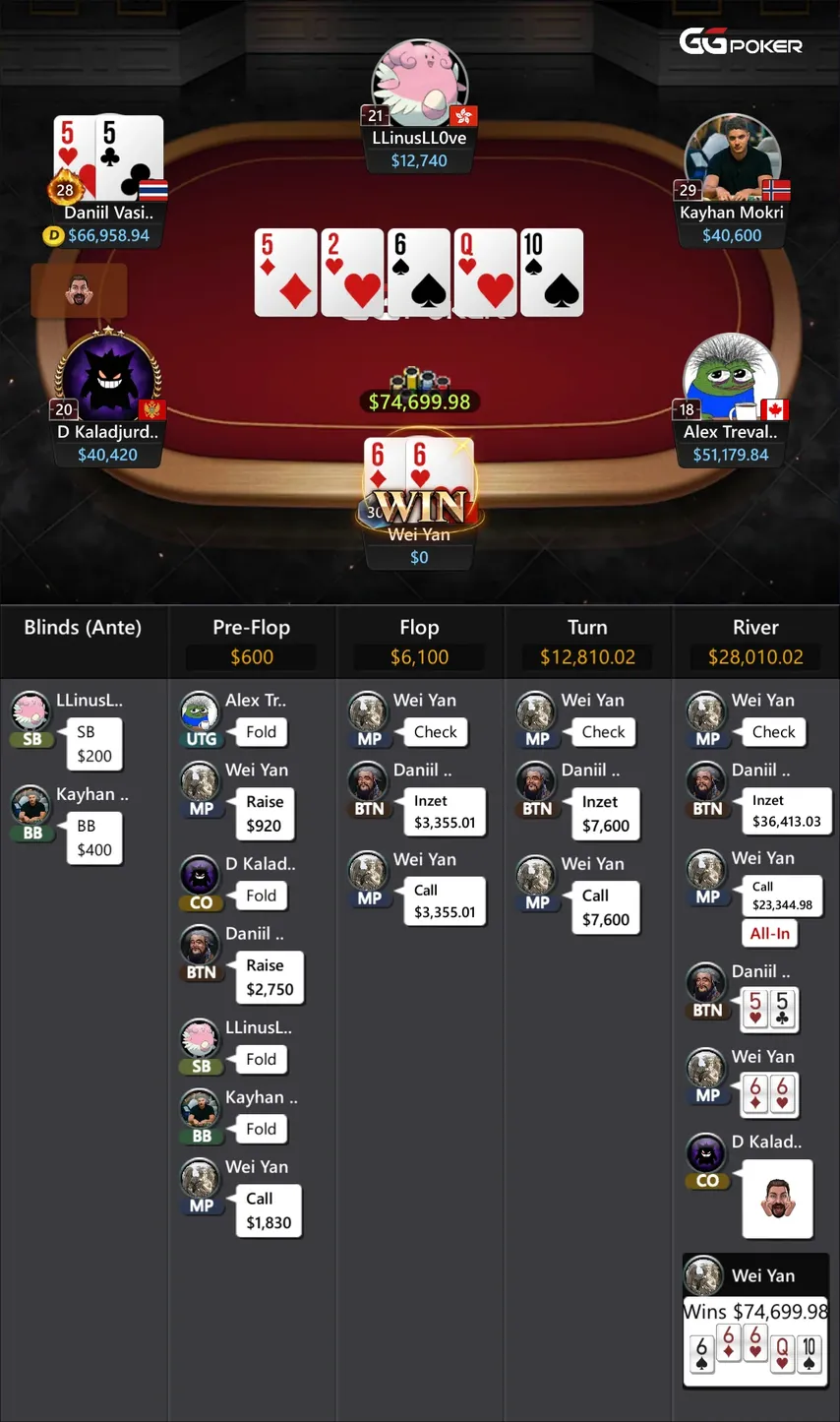
I heard some stories about him using a very aggressive bankroll management.
He was beating a lot of players on NL10K, and NL20K, but then he kept on losing everything to Linus Loeliger and BERRI SWEET on NL40K. So, it was a very tough climb for him. But at some point, he reached the highest stakes and he took away a couple of stacks from Berri.
He also outplayed Linus and he got lucky in some very long sessions, 20 hours plus. So yeah, he won a lot of money and everyone's afraid of playing against him right now.
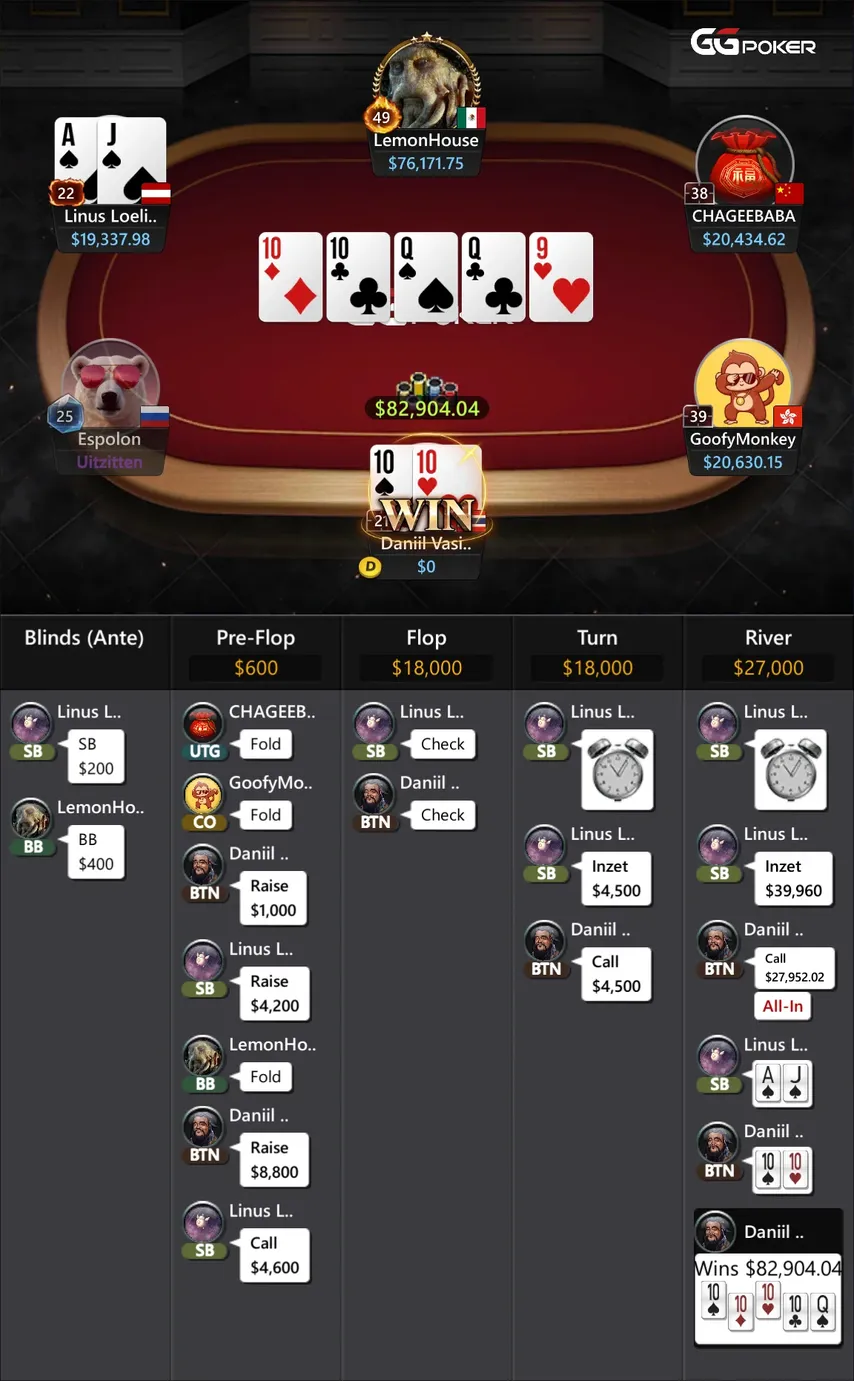
And he also has this very young Stefan11222-like game style. You know, there are these types of players who don't win much, but they don't allow everyone else to win much. So they irritate everyone at the table, playing very aggressively.
Then, one of two things can happen to those guys.
Either they understand they don't have to be that aggressive and they control their aggression and they start winning much more.
Or the second option, which is really rare, and actually happened to Stefan at some point – the guy got so good at this "I won't allow anyone to play" style that he actually started winning decent money.
It's a very rare case, but the most famous examples are LuckyCPS and Stefan.
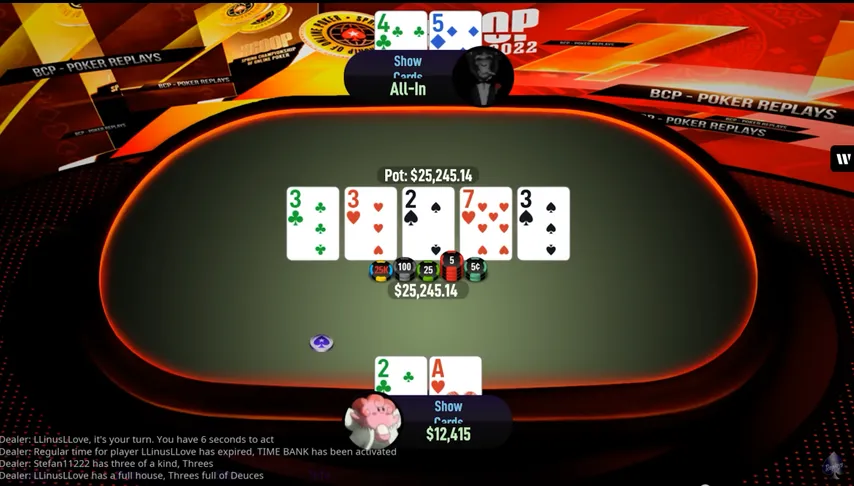
And now Daniil Vasilev as well. He turned the stage from "Nobody wins and I don't win" to "Nobody wins and I win". And it's interesting.
Maybe you have some other examples, and do you agree with this concept?
Jayser: Yes, I agree. The only note here is that I wouldn't add LuckyCPS to this list, because I know him. He was a very good player, a very good winning player back when we played Rush NL400 at FTP, probably in 2014.
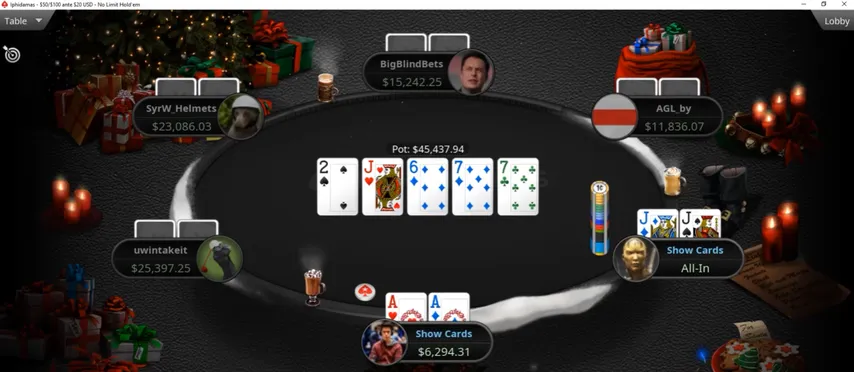
Avr0ra: Well, I have a counter to that. When he and Stefan moved to Stars. They started really poorly and everyone was saying, "Look, those FTP guys can't win anything on Stars."
And I said, "Oh no guys, just you wait. They are here to win."
So there were times when LuckyCPS was much more aggressive. You can ask him yourself, by the way. He was losing money for like 200K hands.
Jayser: Well, I think it was a short period of time, because Vlad is one of my closest friends and I have known him throughout his whole poker career. And he is one of the most consistent players. If he were to publish his lifetime graph, I think one would be surprised how smooth it is. His game is actually very smart/aggressive. He never spews.
So I don't think we can call him one of those guys who wouldn't win themselves and won't allow everyone else to win. He was winning consistently for a long period of time. And now I think he's definitely in the top 10 best players in the world. He doesn't want to play high stakes because he likes comfort. But in terms of understanding of the game, he is definitely a top 10 in the world right now. And if he wanted to, he could definitely reach top 3.
And regarding Daniil, I would agree with you. He actually is one of those guys who play very nasty, very unpleasant poker. And you either realize what's going on and then you are unbeatable, or you just lose everything. I can't even bring you an example of a guy who played like this and then lost everything from the top of my head. Oh no, I can – "Bit2Easy"!
A: Yeah, yeah, a Bit2Spewy.
J: He's the number one example of these types of players.
A: Yeah, and this guy we were talking about before, your nemesis "TEENageTURTL" from NL200. He is also, I would say, this kind of player. Well, at least at some point in his career. His career didn't go that well, I believe he got stuck on mid stakes mostly.
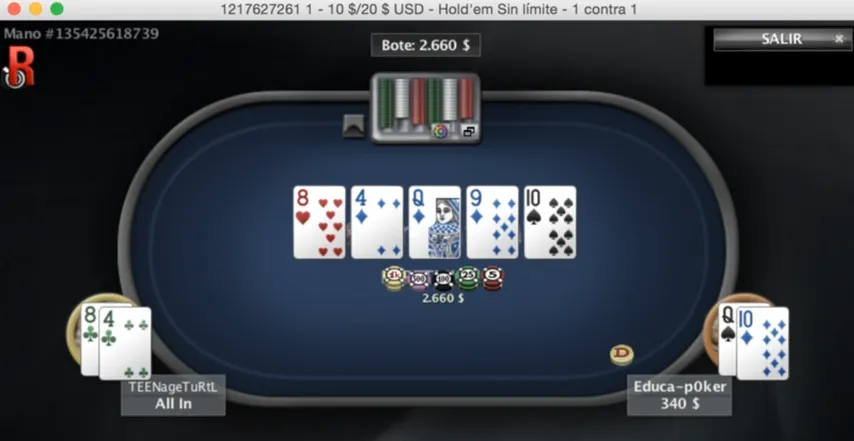
J: Anyways, talking of guys like Daniil, yeah, it sounds about right what you said about him. And don't forget how much variance is affecting things here. When we have a sample of millions of hands, then variance is just a non-factor.
Jayser1337 Becomes a Father
Brdz1: Finally, our congratulations to Sergii on becoming a father. We have a new dad in our community. We had one and now we have another. So tell us please, what changed for you?
Jayser: Well, first of all, when she was giving birth, I was expecting this feeling that Feruell explained in his book – that when the father first sees his child or picks his child up in his hands, he has this huge hormonal release and so on.
Well, actually, I didn't feel anything like that. I was just relieved because the process was quite hard for her. I wanted it to finish already, and I hadn't slept for like 24 hours. So, no hormonal release.
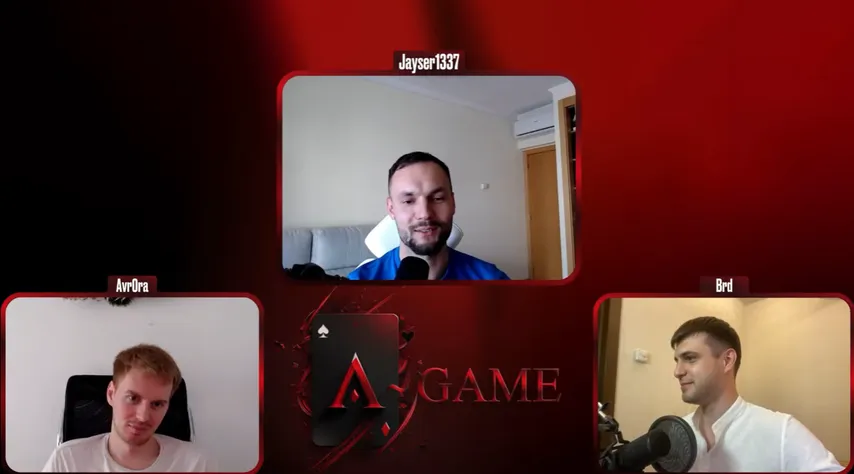
But as far as I understand how this works in terms of psychology and physiology, the maternal instinct is formed while the child is still in the womb. And when he is born, going through agony and pain, the woman feels a great connection with him, this unconditional love.
But it's not 10 out of 10 from the get-go. It shapes up over time, and it's different for everyone. Some mothers don't actually feel any love and affection for their child. It happens sometimes.
And for men, this connection with the child happens over time, always, not instantaneously. Maybe for Feruell (Russian biography here) it was from the start, and maybe for some men it is like that. But mostly, the connection forms gradually over time. The more time passes, the more attached you are to your kid. And it is actually quite easy to prove. Just take a look how many families with one mother we have around, and how many families we have with one father. I think the ratio would be like 99 to 1 or along those lines.So yeah, for a man to get a real bond with his child, he has to spend a lot of time with him. And it rarely happens instantaneously, like, "Oh, my life has changed, now I'm a new person."
A: Yeah, Feruell in his Russian Telegram channel is very sweet about his relationship with his son, and about how he spends so much time with him, and how he really enjoys all of this.
B: So yeah, in some ways, it is a well-intentioned propaganda of reproduction, let's say.
J: They're enticing us into it. Yeah, the older your child gets, the more you can connect and communicate with him. The first six or three months, he just lays down, he eats, sleeps, and you just change his diapers, and that's it.
You don't get anything in return. He just learns to express emotions, he learns to smile, and of course, it's very nice, it makes you really happy. But I assume that the most interesting part is waiting for me ahead.
A: Yeah, I agree.
